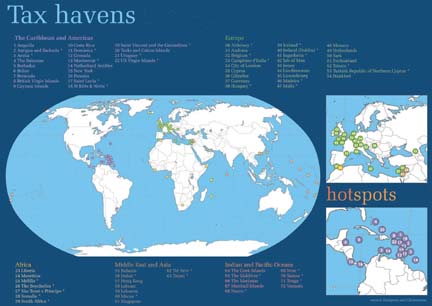The Chair of the committee
that advises on business appointments to departing senior civil servants is a
director of a company that has won a contract related to the Health and Social
Care Act in which he voted in favour.
Lord Lang of
Monkton is the chair of the Advisory Committee on Business Appointments
(ACOBA). Set up in 1975, the remit of the committee is given by the Chairman
Lord Lang on the website
‘It is
long-standing government policy that it is in the public interest that those
with experience in government should be able to move into business or other
areas of public life and it is equally important that in the taking up of an
appointment, there is no cause for suspicion of impropriety.’
Lord Lang of
Monkton is also the director of Marsh & McLennan, a risk and strategy
management company that amongst other services helps ‘hospitals, insurers, pharmaceutical companies and
industry associations understand the implications of changing policy
environments".
Despite this
interest, Lord Lang along with 142 other peers with recent or present financial
links to companies involved in private healthcare, was able to vote on the
Health and Social Care bill helping it become an Act. The Conservative peer did
indeed vote in all key divisions loyal to his
party.
In February 2011
Marsh was appointed by the Department of Health
to conduct an ‘industry review’ of the NHS Litigation Authority. The objective
of the review was to ‘identify opportunities to introduce greater commercial
management and practice to services.
Early days
ACOBA was
initially created to provide advice on applications from the most senior Crown
servants who wish to take up outside appointments after they leave Crown
service. The work of the committee then expanded from 1995 to provide advice to
Ministers on their employment for two years after leaving office.
The organisation’s
inability to prevent the conflicts of interests that riddle both parliamentary
houses led the transparency campaigners Spinwatch to call for ACOBA’s
abolition.
McKinsey
In written evidence submitted to the
Public Administration Committee on a report on business appointment rules, they
pointed out the danger private interests being in a position to gain ‘a
competitive advantage by virtue of the inside knowledge, contacts and networks
developed while in (temporary) public service.’
Further evidence
focused on McKinsey, the management consultancy company that encouraged the £20
billion cuts the NHS is now forced to apply and who made several suggestions to end the free at
the point of need in Northern Ireland.
Spinwatch pointed
out how Tom Kibasi who ‘started at McKinsey in 2004, left two years later to
become Senior Policy Advisor to chief executive of the NHS David Nicholson, and
moved back to McKinsey in 2008, where he’s been busy helping the DH reform the
system.’ Further revolving door behaviour came in the form of David Cox, who
‘worked in the NHS, jumped ship to McKinsey, then moved to the Conservative
Party’s “Implementation team” for nine months, before settling at NHS London as
“Strategy Manager” responsible for “cutting-edge system-wide design and
planning of London’s healthcare system strategy.”’
Ex-NHS hospital
head Mark Goldman is now an adviser for the ‘McKinsey Hospital Institute,
(which contracts its services to NHS hospitals); ex-McKinsey consultant Nick
Moberly who is now CEO of Royal Surrey County Hospital; Dr Doug Russell,
ex-medical director of Tower Hamlets and now senior advisor to McKinsey.’
Such links are but
the tip of the iceberg, which Spinwatch rightfully concluded continue despite
the existence of ACOBA, which led them to conclude ‘We believe that ACOBA is an
ineffective body that should be abolished and replaced with a statutory
regulator.’
All civil servants
who go through the site are told either it is okay to take up this job without
conditions or if conditions apply then a standard reply is given such as - so
long as it is on
the understanding that the person ‘would not draw on any privileged information
from his time in Government.’
When Jim Easton left his position as ‘Director
of Improvement and Efficiency’, at the Department of Health to become Managing
director of Care UK, ACOBA stated that there must be ‘a
waiting period of three months from his last day of service; that for 12 months,
he should not become involved in advising on bids or contracts for Department
of Health business; and that, for two years from the
same date, he should not become personally involved in lobbying UK Government
on behalf of his new employer.‘
Do you trust that
this won’t happen in some form? Do we honestly believe that when a person moves to a corporation they do not pass on information to their corporate employer
on government thinking!
The line between
public servants and corporate employees is practically non-existent which
Spinwatch suggests would be much better served with a statutory regulator
because ACOBA lacks ‘teeth’. ACOBA has no enforcement powers, so even if a person was to step out of line, nothing would be done, which is why Paul Flynn, Labour’s
tireless campaigner on lobbying described it as a ‘Committee of Futility.’
In the meantime,
they can start improving things by removing a chairman who voted on a health
bill despite a financial link to a company who earned a contract from the NHS
on the changes before it became an Act. A Lord who offered
his services to a fake lobbying company in a 2010 Channel 4 sting.
The committee is utterly flawed,
the work they do has made no difference to combat the problems of the
revolving door of civil servants working in the private sector only to
return on the corporations behalf.
I add my voice to those of Spinwatch and Paul Flynn calling for its
abolition. Also the resignation of Lord Lang from both ACOBA and the Lords.





